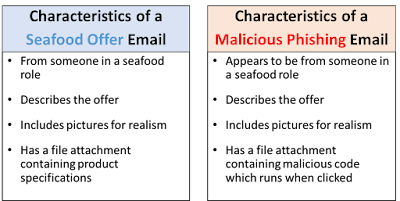How do you negotiate the terms of the deal?
(price, quantity, payment terms, delivery, and more)
Dealboard’s
research indicates the overwhelming majority of the seafood industry
relies on text messaging – Skype, iMessage, WhatsApp, WeChat and more.
Here
is yet another example of technology under-serving the seafood industry,
because these methods of communication introduce problematic
situations for something as important as the terms of the deal for a large
seafood transaction between two companies.
Problem
1: Did the Chicken or the Egg Come First?
Seafood
deals require agreement on a lot of different terms and conditions, requiring exchange of many messages to arrive at an agreement.
Unfortunately, since messages cross each other, the sequence in which you see your messages may not be the same as the
sequence seen by the recipient. This means you see the discussion differently.
Consider how confusing it is to rely on text messaging for something much simpler than negotiating a seafood transaction - such as arranging to meet my son for dinner later in the week. This simple task falls down under the constraints of text messaging. To understand why, read the text exchange pictured below:

What
is it that we agreed to, exactly? I have no idea whether he likes the time, the first location, or the second location I
proposed.
Text messaging leaves dangerously wide room for interpretation. Do you want your trading partners to misunderstand shipping information? Payment terms? Price or quantity?
Problem 2: The Single ThreadText messaging is convenient, but it reduces communication between parties to a single thread. If you communicate with someone frequently, that's a long thread! It becomes tremendously difficult to scroll back in time to review what was agreed some time ago.
What happens when you're negotiating with one person about the mussels, but also the cod? It is nearly impossible to keep track of which text messages relate to which product offers.
Problem 3: Privacy, and Preserving Your Margin
How many times have you, or someone you know, accidentally replied on the wrong thread? When this happens in our personal lives it's embarrassing, but when it happens in professional life you are probably giving away critical information which could harm your negotiations and rob you of available margin.
Wouldn't it be nice if there were a better, cleaner way to negotiate seafood transactions that was just as easy as text messaging, but with none of the shortcomings associated with that generic technology?
That's where Dealboard comes in. Stop being under-served... learn more or sign up for a free trial at www.dealboard.biz.













